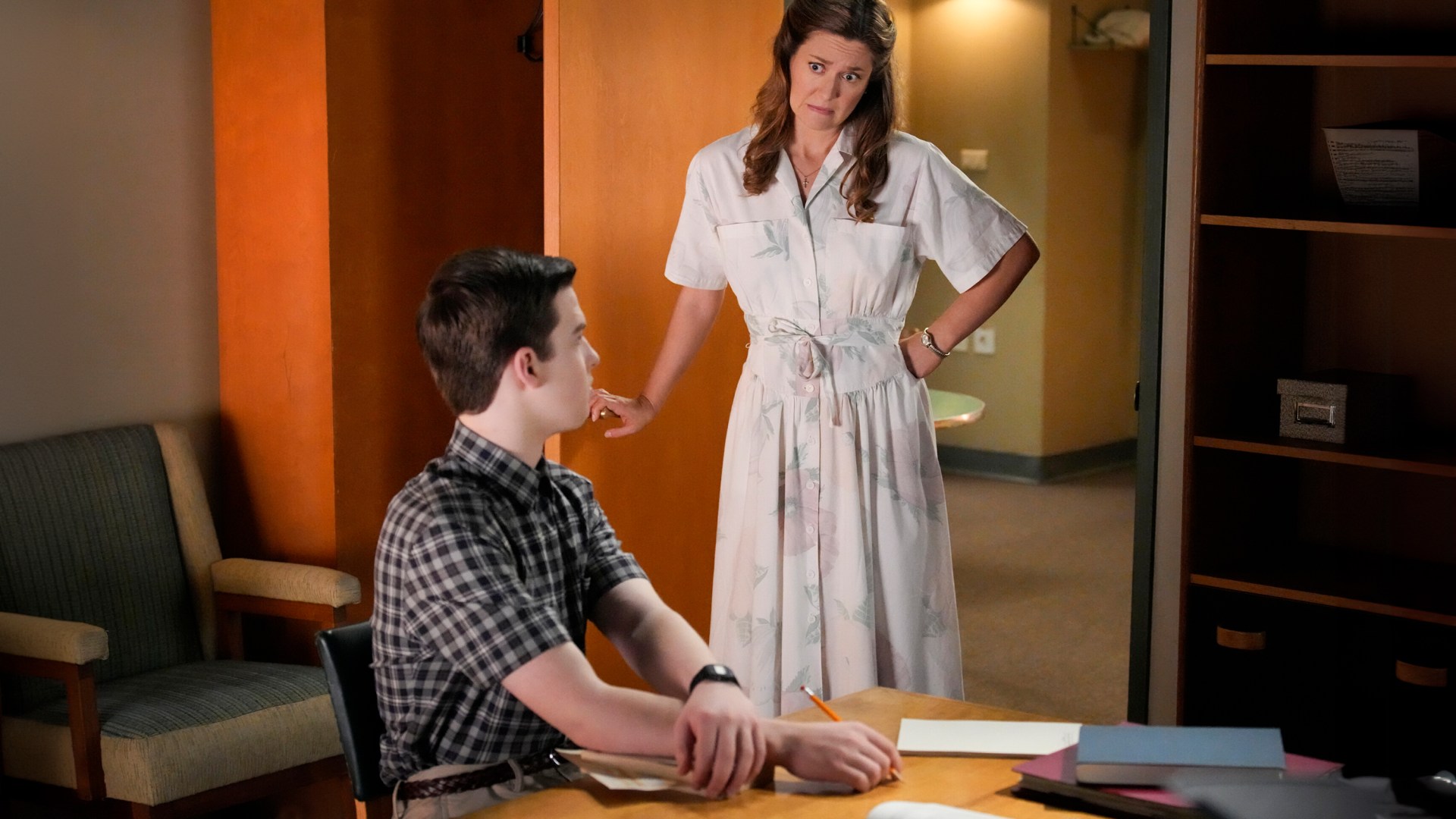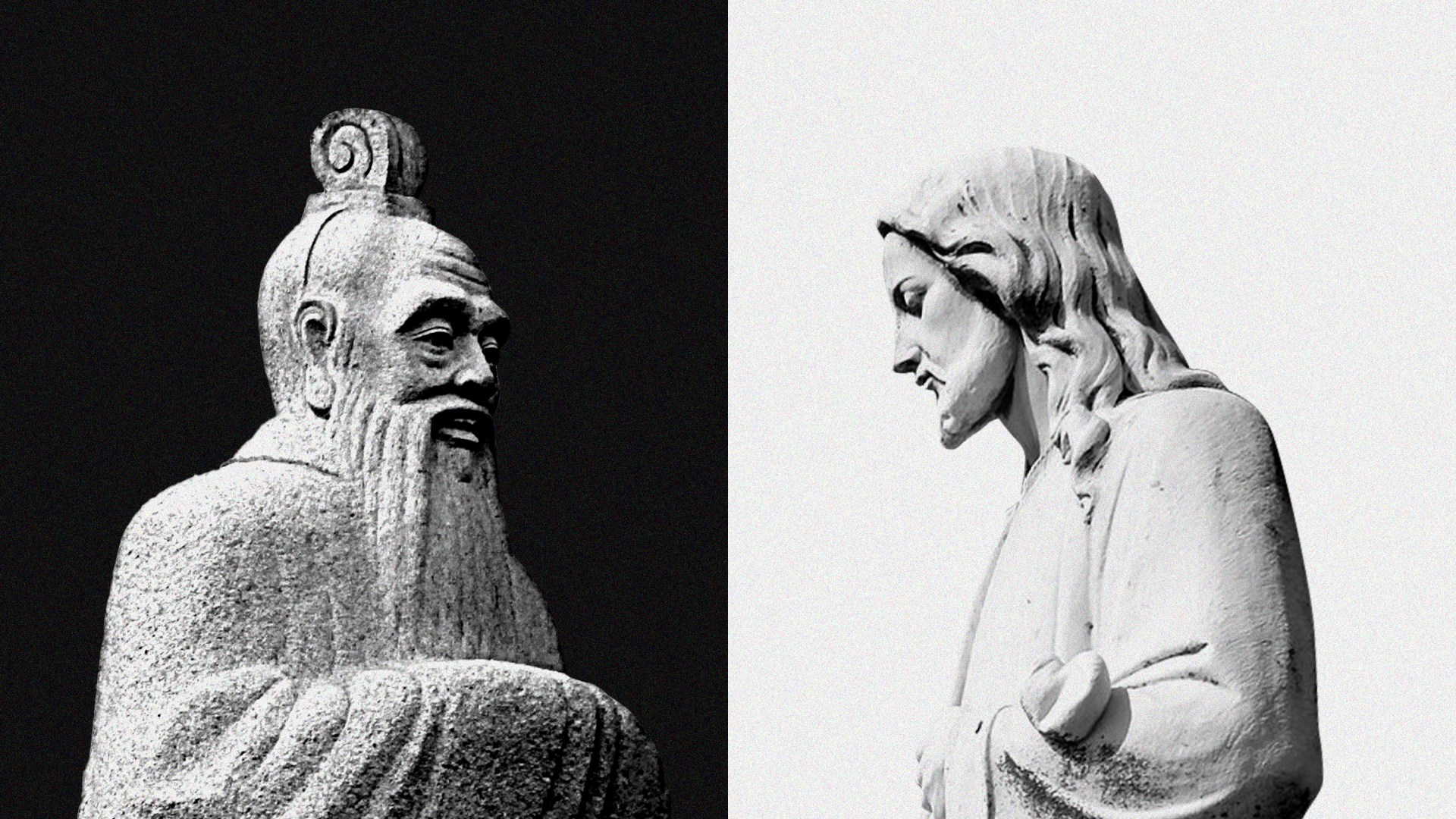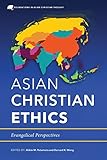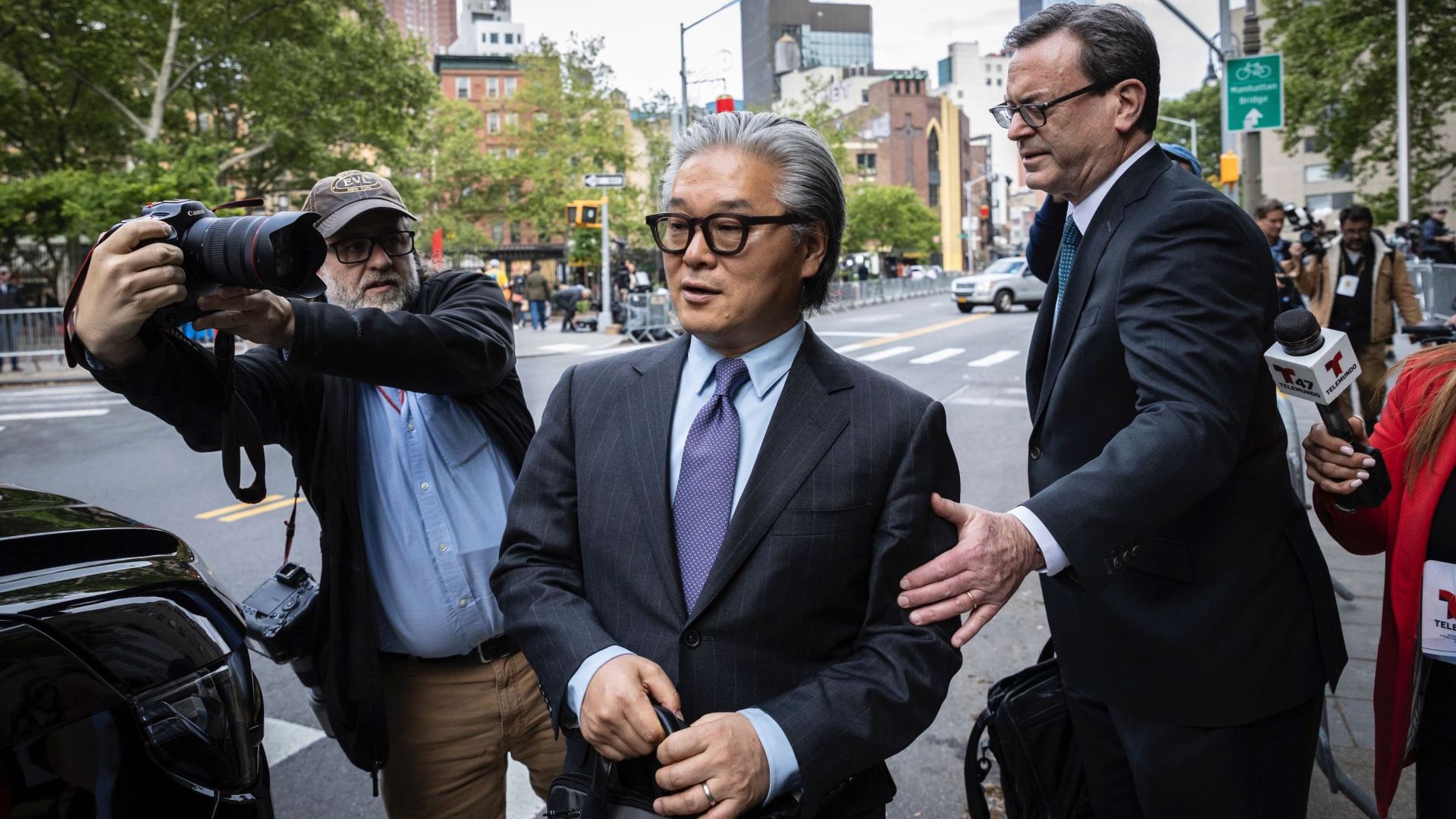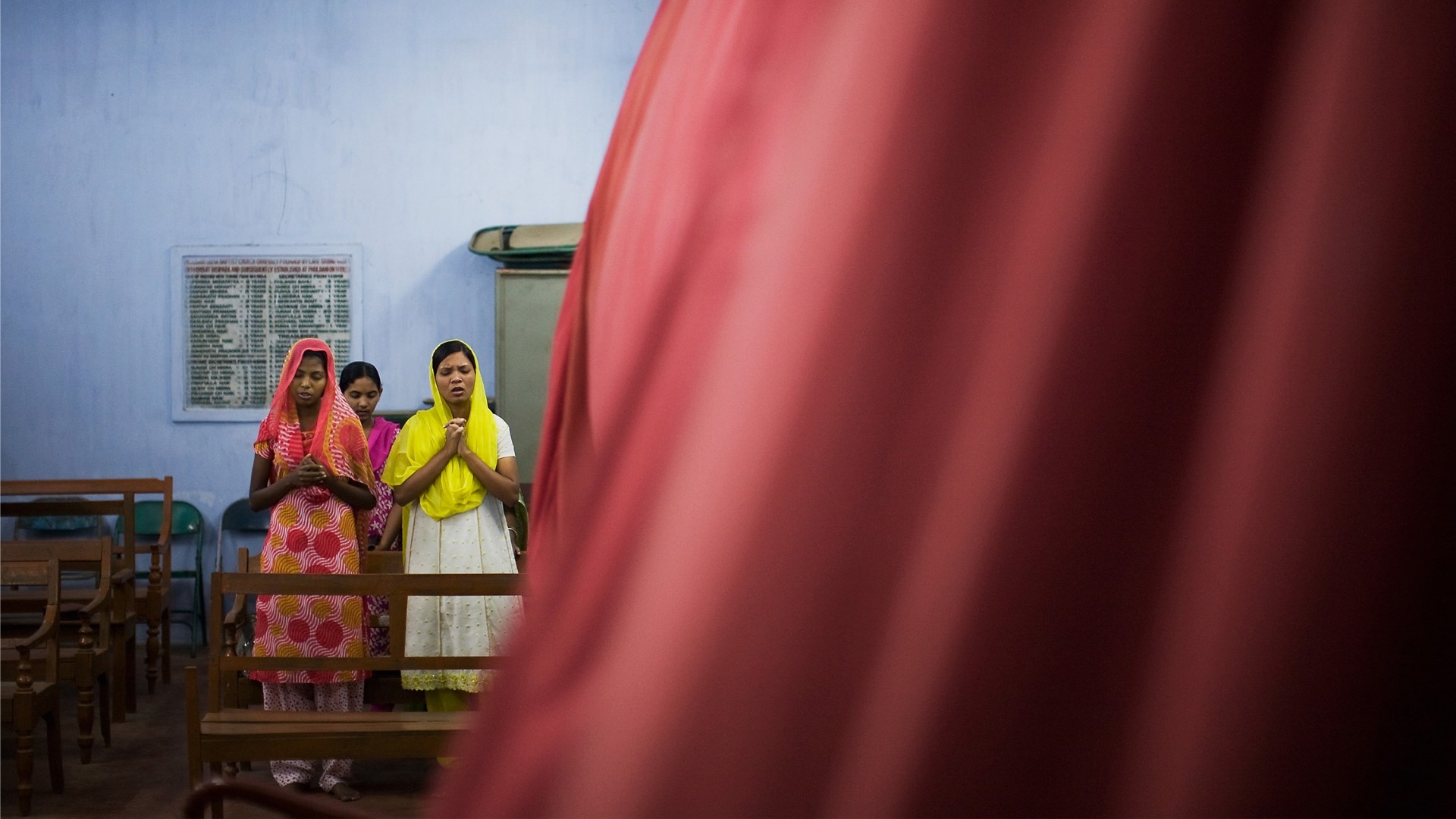Kofi Owusu Dua-Anto, a Ghanaian gospel musician who challenged church leaders with his catchy songs, died last month at the age of 45. Known professionally as KODA, the artist passed away suddenly on April 21 after a yet-undisclosed short illness.
KODA won awards for his vocal and musical finesse and production skills, but he used the platform his music offered him to speak out against the materialism and self-promotion he believed had overtaken his country’s church leaders.
“What is being preached from the pulpit? If it’s just the aesthetics of Christianity … the flashy things of how the man of God has visited 20 churches in the UK or the US and how he stood in T. D. Jakes’s church … if that’s the vision … then that’s what [Christians will] chase,” he said in 2021.
In 2013, KODA put these concerns to music when he released “Nsem Pii” (Many Issues).
“Fifteen ways to be successful, 13 ways to make much money, but the one way to make to heaven, preacher man, you don’t preach about it,” he sang in both Twi, a Ghanian local language, and English. “Listen, last Sunday I heard you preach; I must confess, I was confused, was that church or GIMPA?” (GIMPA or Ghana Institute of Management and Public Administration, is a prestigious public university in Ghana.)
The track surprised many in the local Christian community, one that traditionally practiced unquestioned reverence toward pastors and church leaders, and the gospel music industry, which generally only sang about God and commented little on culture.
KODA credited the Bible as his inspiration for his lyrics.
“I was reading the Acts of the Apostles from [chapters] 1 to 4 and realized some churches are veering off their godly activities,” he said. “As for the song, it is a great song and he who has ears should listen and listen carefully before judging.”
‘A Miracle’
KODA was born on December 15, 1978, in Takoradi, a city in western Ghana considered to be the home of highlife, a West African musical genre that mixes local sounds with pop, rock, hip-hop, and jazz. Raised in a Catholic home, he never forgot a visit he made at an early age to an Assemblies of God church, where he saw a musician playing a bass guitar.
“There was this old man that would pluck a string. … It was like, ‘What is the man playing?’” he said. “That is my first memory of being in church and being in love with music.”
It was a couple more years before KODA began playing music, an event he later referred to as a “miracle,” and one that occurred around age 10, when a new music teacher arrived at his church. When KODA told him that he wanted to play the guitar, the man told him that he wanted to pray for him.
“He put his hands on my head and said, ‘God, give this young man a double portion of what I carry,’” KODA said.
After receiving this blessing, which KODA believed came true in his life, his mother soon enrolled him in guitar lessons.
KODA’s musical education continued when he attended the prestigious all-boys’ Mfantsipim School in central Ghana as a teenager. There, he met future Ghanaian gospel singer Nii Okai, who offered the junior student musical opportunities and leadership positions—and something far more lasting.
In Okai, KODA saw someone who “you could tell God was with.”
“I said, ‘If I’ll get what this senior has, I want to give my life to Christ,’” he said.
After graduating from secondary school, KODA continued his education at the Kwame Nkrumah University of Science and Technology (KNUST), one of Ghana’s leading universities. Despite the STEM focus of the school, KODA continued to seek out the arts, serving as his university’s choir director and as a music director and instrumentalist for a campus ministry and joining a jazz troupe.
‘Why can’t we care for each other?’
While in university, KODA joined Da Project, an acclaimed Ghanaian contemporary gospel group, and later won Male Vocalist of the Year from the Ghana Music Awards, the country’s equivalent to the Grammys. He later released several gospel jazz albums, produced instructional DVDs on lead and bass guitar, and collaborated with world-renowned Nigerian trumpeter Nathaniel Bassey.
Back in his home in Takoradi, KODA opened a state-of-the-art studio and wrote, produced, and played music that often became commercially successful. Though his songs often focused on Christians’ relationship with God or Christ’s victory over Satan, several interactions left him wondering if his music might be a good place to challenge the church.
At one point, a friend told KODA that he had resorted to alcohol because he was too poor to buy food, and he took food from public funerals he attended to give to his family. At another point, a woman from his church stopped KODA as he was leaving and told him she didn’t have money to buy food. KODA gave her the money he had.
“She bought just a sachet of water with some … short biscuits that they give you when you are on the plane,” he said. “It broke my heart. … Why can’t we care for each other like the way that the first church cared for each other?”
These experiences helped stir KODA to release “Nsem Pii,” his musical critique of pastors who made their congregants “the target for the next harvest.” “For how else can we buy the preacher’s dream car?” he sang, noting that many of those attending couldn’t even afford to eat three meals a day.
Three years later, KODA doubled down on this message by releasing “Adooso” (Too Much), writing this time about pastors extorting money from unsuspecting Christians seeking prayer. He later criticized church leaders for telling their congregations that they had to “sow a seed” (or financially contribute) before they could access deliverance.
“That almost sounds like extortion in the name of Jesus. Freely have we received; freely should we give,” he said, referencing Jesus’ words in Matthew 10:8.
Despite the sober messages, KODA’s songs found a wide audience.
“He told his message in a manner most musicians will not have the courage to, with an accompaniment of world-class tunes you just can’t resist,” wrote GhanaWeb.
Some dubbed KODA the “Preacher’s Preacher” after releasing songs with messages that “most preacher men have shuddered to mention from their pulpit in recent times,” wrote Harvest Praise Official.
“God gave me the gift of songwriting. … If I’m not careful, I can write a song without even praying because I studied songwriting,” KODA said. “So now, I’m careful what to write. I’m careful to wait till I hear before I write. … I’ve been so gifted; I need to be careful I don’t run ahead of the Holy Spirit.”
KODA is survived by his wife and fellow gospel singer, Ewurama Dua-Anto, and their three children.











